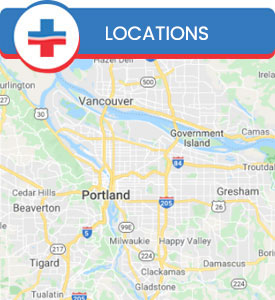Why Choose Confidential STD Testing for Your Health?
STD symptoms include chlamydia, gonorrhea, hepatitis A, B, and C, herpes, HIV, and syphilis. STDs can cause long-term health problems when left untreated. If you are experiencing symptoms of an STD, then visit Columbia Clinic Urgent Care for confidential STD testing. For more information, please contact us or book an appointment online. We have convenient locations to serve you at Tibbetts St Portland, Stark Street Portland and Tigard, OR.
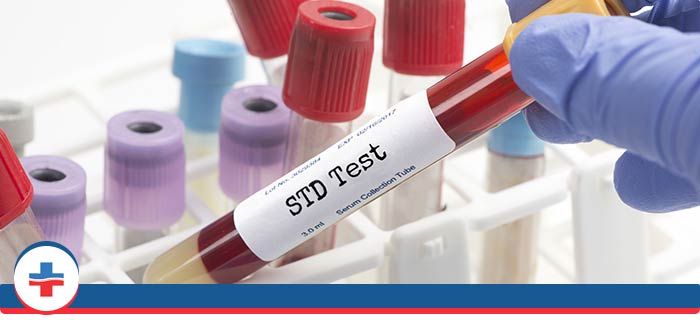
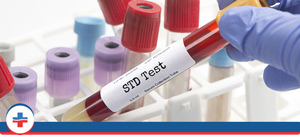
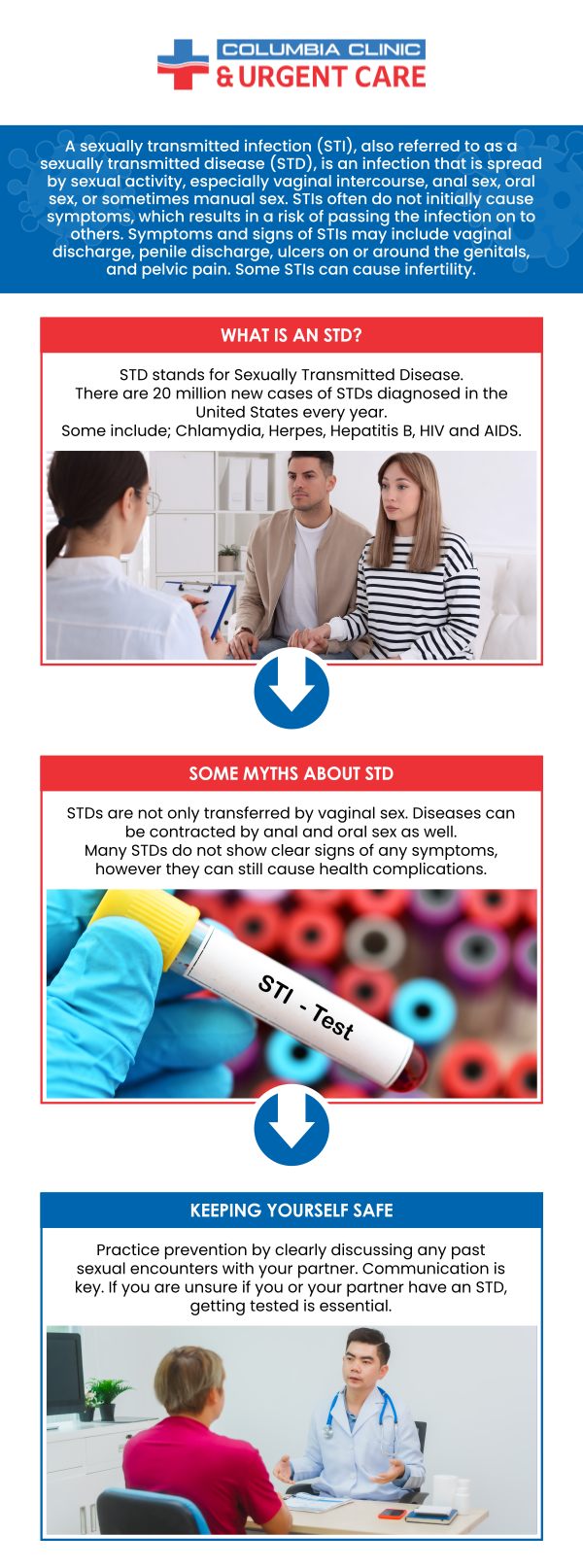
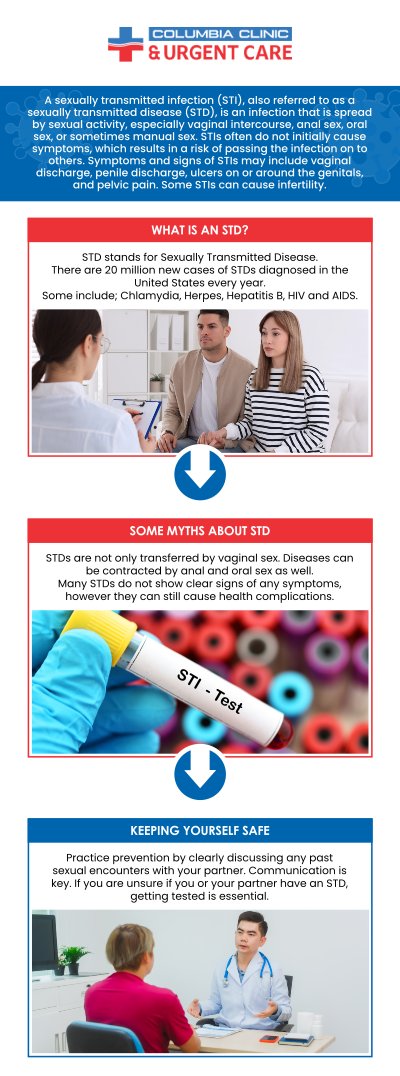
Table of Contents:
Who should get tested for STDs?
I think I have symptoms of an STD. Should I get tested?
Are there complications with STDs?
What STDs should I be tested for?
Confidential STD Testing is used to detect the presence of STDs in an individual in a discreet and private facility. An STD, which stands for sexually transmitted disease, is a type of illness that can be passed on from one person to another through sexual contact. STDs can cause a range of symptoms, including itching, burning, discolorations, discharge, foul-smelling odor, and rashes or warts. If left untreated, they can also lead to serious health problems, such as infertility, pelvic inflammatory disease, and cancer.
Different people have different needs, including when to get tested for STDs. The following recommendations are:
– Everyone between the ages of 13 to 64 should get tested, at least once, for HIV.
– Sexually active women under 25 should get tested yearly for common bacterial infections like chlamydia and gonorrhea.
– All pregnant women should be tested for syphilis, hepatitis B, and HIV.
– All women in at-risk pregnancies should be tested for chlamydia and gonorrhea before giving birth.
– Those having unprotected sex or sharing needles should be tested for HIV every year.
If you are exhibiting the signs or symptoms of an STD, it is important to get tested, especially if you are sexually active or have multiple partners. However, depending on the type of STD, the result may be falsely negative if the test is taken too soon. Testing guidelines based on specific diseases include:
– Chlamydia — Five days after exposure
– Gonorrhea — Six days after possible exposure
– Hepatitis A — Seven weeks after exposure
– Hepatitis B — 3-6 weeks after exposure
– Hepatitis C — Nine weeks after exposure
– Herpes — Six weeks after exposure
– HIV — 1-3 months after exposure
– Syphilis — Six weeks after exposure
These are just guidelines; your situation may necessitate different testing times and windows.
If STDs are left untreated, they can cause long-term health problems, including any of the following possible complications:
– Reproductive health problems, including infertility
– Pelvic inflammatory disease (PID) and pelvic pain
– Pregnancy complications
– Certain cancers, such as HPV-associated cervical
– Heart disease
– Eye inflammation
In addition to the aforementioned complications, there are many risks that women can experience from STDs during pregnancy and after delivery. For example, STDs can be transmitted from mother to baby during pregnancy; this can increase the risk of certain complications of pregnancy, including birth defects, miscarriage, and stillbirth.
If syphilis is passed from mother to child (congenital syphilis), it can cause deformed bones, enlarged liver and spine, skin rashes, blindness, severe anemia, deafness, jaundice, and meningitis.
If chlamydia, gonorrhea, or herpes is transmitted to the newborn during delivery, it can lead to a number of health issues, such as eye infections and lung infections.
The STDs for which a person should be tested vary depending on their age, gender, and other factors. For example:
– Women who are sexually active and under 25 should be tested for chlamydia and gonorrhea every year; this also includes women over 25 with certain risk factors.
– Pregnant women should all be tested for syphilis, HIV, and hepatitis B early in pregnancy; those at risk should be tested for chlamydia and gonorrhea.
– Sexually active Men should be tested for chlamydia, gonorrhea, HIV, and syphilis at least once a year; men at high risk should be tested more frequently, such as every three to six months.
Constipation treatment is available at Columbia Clinic Urgent Care. For more information, contact us or schedule an appointment online. We serve patients from Tibbetts St Portland, Milwaukie OR, Oak Grove OR, Stark Street Portland, Fairview OR, Happy Valley OR, Gladstone OR, Cedar Mill OR, Tigard OR, Lake Oswego OR, Tualatin OR, Oregon City OR.

